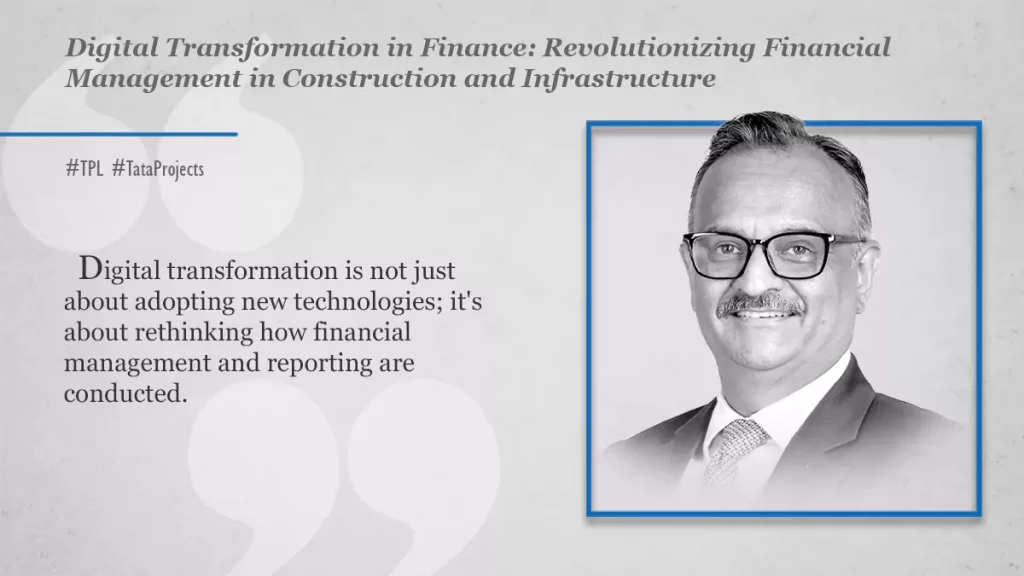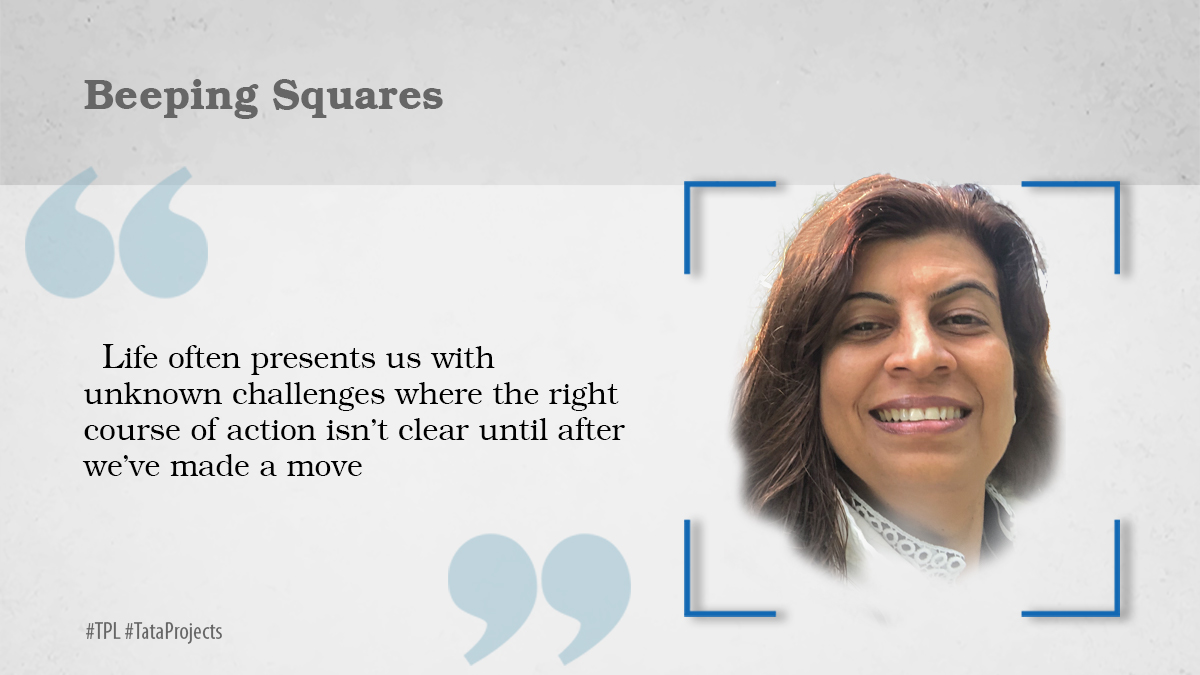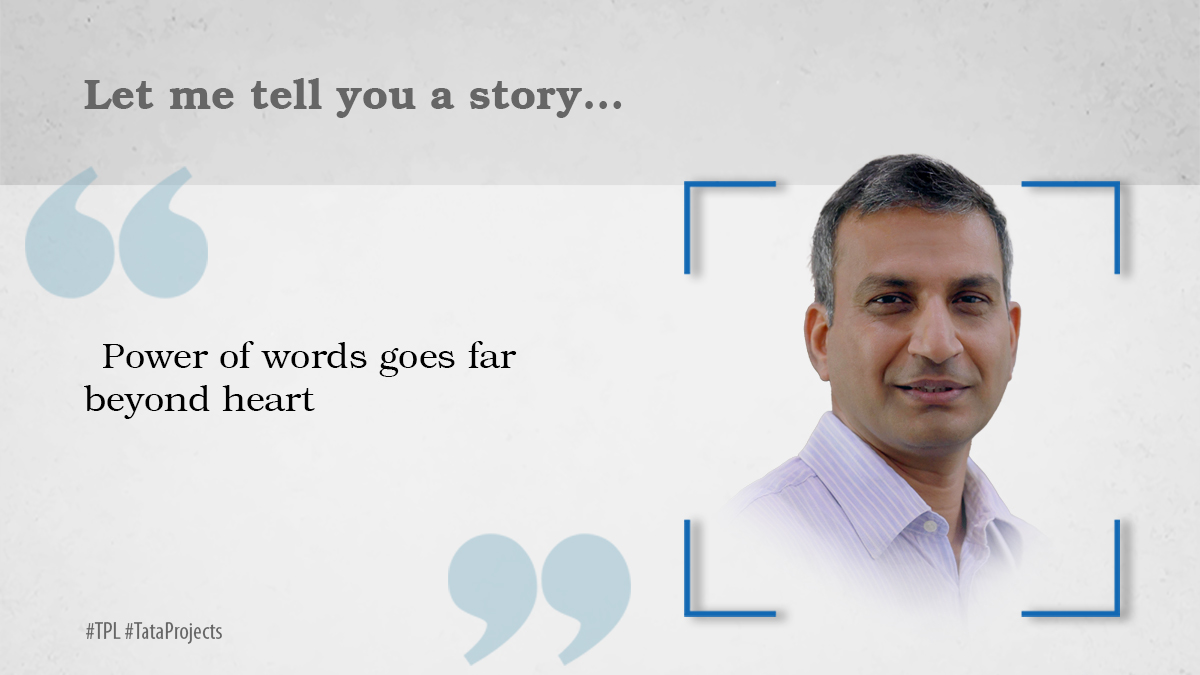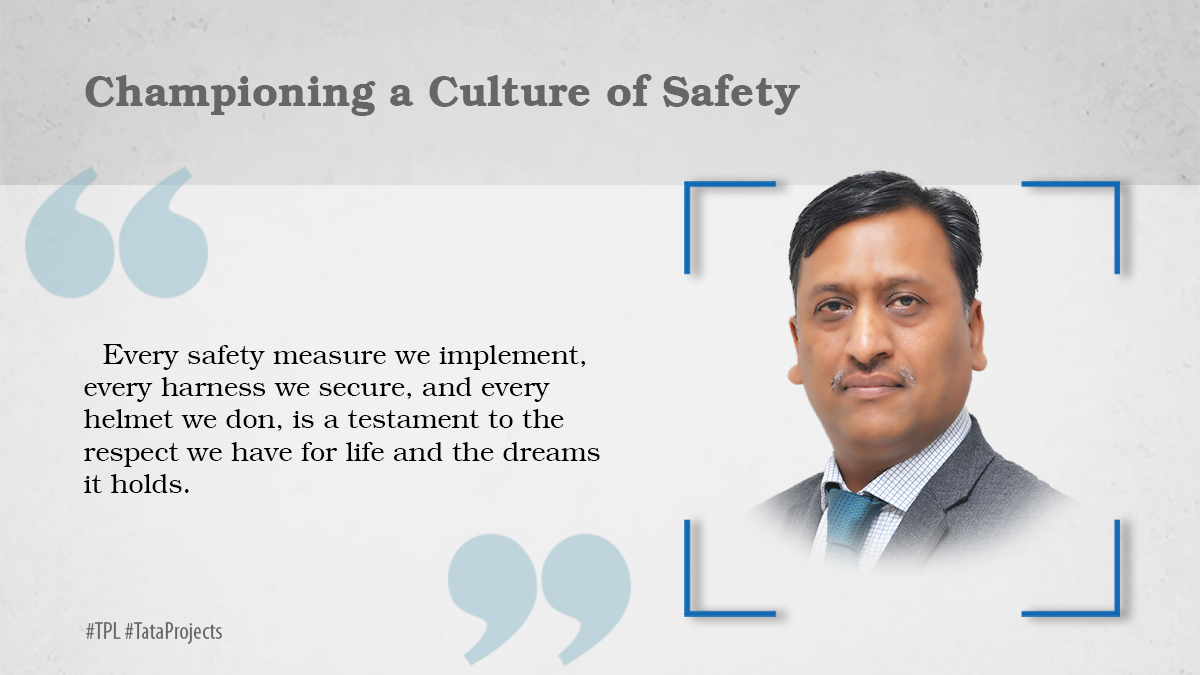Digital Transformation is not just about adopting new technologies; it’s about rethinking how financial management and reporting are conducted.
The construction and infrastructure industry is undergoing a significant transformation, driven by digital innovation. This transformation is not just about adopting new technologies; it’s about rethinking how financial management and reporting are conducted. Today let’s explore how digital tools and technologies are reshaping these critical business areas.
Financial Management: A New Digital Era
Robotic Process Automation Initiatives – As of now, Finance robotics is used in transaction processing shared services, however there is scope to increase the usage of the same for more processes and also into other finance subfunctions such as procurement and tax. Finance robotics is evolving from simple individual task automation to full process automation that could improve the accuracy of financial analysis and forecasts. Automating finance processes requires combining finance robotics with other intelligent automation technologies.
Business Intelligence Tools: Financial analysis uses Microsoft Power BI to bring together financial key performance indicators (KPIs), charts, and financial statements. Power BI allows businesses to bridge the gap between data and decision-making by transforming raw data from a range of different sources into powerful insights. These insights are then displayed in a clear, graphical, actionable way via the dashboard. This helps to streamline process, drastically reduce time and effort in reporting and create internal efficiencies. Usage of SAP BI tools such as SAP Analytics Cloud (SAC) in predictive analytics, risk assessment, and budget forecasting, helps in managing large-scale projects.
AI and Machine Learning : Artificial Intelligence (AI) and Machine Learning (ML) are not just buzzwords in finance. They provide predictive analytics, risk assessment, and budget forecasting, which are invaluable in managing large-scale projects. AI algorithms can analyse past project data to forecast costs and timelines, reducing the risks of budget overruns.
Financial Reporting: Enhanced Accuracy and Efficiency
Data Analytics Tools: Data analytics tools have transformed financial reporting. They allow the extraction of meaningful insights from vast amounts of data, leading to more informed decision-making. In construction, where projects often span multiple years and budgets, these tools enable real-time monitoring and adjustments.
Automated Reporting Systems: Automation in financial reporting reduces human errors and increases efficiency. Automated systems can generate financial reports, compliance documentation, and budget summaries, freeing up valuable time for financial analysts to focus on strategic planning.
Integrated ERP Systems: Custom software integration ensures a seamless flow of information across various functions, eliminates data silos, and enhances overall organizational efficiency. Integration of bespoke applications into the centralised system enhances efficiency by eliminating the need for repetitive data entry across different software systems, reducing errors and saving time. It also ensures data consistency, as all systems access and update a single data source, providing a “single source of truth.” In addition, integration enhances the user experience by providing a seamless workflow across different systems, reducing the need to switch between multiple software platforms to perform interrelated tasks.
The Road Ahead: Challenges and Opportunities
While the potential of these technologies is immense, the path to digital transformation is not without its challenges. It requires significant investment, training, and a shift in organizational culture. However, the opportunities they present – increased efficiency, better risk management, and more informed decision-making – make this journey worthwhile.
In conclusion, the digital transformation in financial management and reporting is not just changing the construction and infrastructure industry; it’s propelling it into a future where data-driven decisions lead to more efficient, transparent, and successful project outcomes. As these technologies continue to evolve, they will undoubtedly unveil new horizons for the industry.
Sanjay Sharma,
Chief Financial Officer,
Tata Projects Limited
Simplify. Create.
























